(1) Nickel (Ni): Nickel can improve the strength of steel, and can maintain good plasticity and toughness. The influence of several main elements in steel on the properties of steel.
(2) Chromium (Cr): Chromium can significantly improve the strength, hardness and abrasion resistance of steel, but at the same time it will reduce plasticity and toughness.
(3) Titanium (Ti): Titanium is a deoxidizer in steel. Reduce effectiveness sensitivity and cold brittleness. Adding a corresponding amount of titanium to the steel has the ability to resist inter-granular corrosion.
(4) Molybdenum (Mo): Adding molybdenum to steel can improve the mechanical properties of steel.
(5) Carbon (c): As the carbon content increases, the yield point and tensile strength increase, but the plasticity and impact properties decrease. If the carbon content is too high, inter-granular corrosion is unqualified. The boundary between steel and iron is controlled by the C content.
(6) Sulfur (S): Sulfur is a harmful element in steel, which causes the steel to become hot-embrittled, reduces the ductility and toughness of the steel, easily causes cracks during forging, and also reduces the corrosion resistance of the steel. Therefore, the sulfur content must be controlled as low as possible.
(7) Silicon (Si): Si is a deoxidizing agent and a desulfurizing agent. It has high strength and hardness, which can improve the hot work-ability of steel.
(8) Phosphorus (P): Phosphorus is a harmful element in steel, which increases the cold brittleness of steel, deteriorates the welding performance, reduces plasticity, and deteriorates the cold bending performance. Generally, the lower the phosphorus content in steel, the better.
(9) Nitrogen (N): Nitrogen can improve the strength, low temperature toughness and weld-ability of steel. Increasing effectiveness sensitivity. The right amount of nitrogen can improve the pitting resistance and strength of stainless steel.
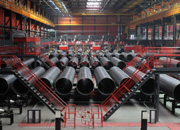 Threeway Steel is known as a professional supplier engaged in manufacturing and distributing a wide range of steel pipe, and our headquarter located the central part of China – Hunan and six associated factories throughout China.
Threeway Steel is known as a professional supplier engaged in manufacturing and distributing a wide range of steel pipe, and our headquarter located the central part of China – Hunan and six associated factories throughout China.
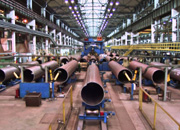 Threeway Steel is known as a professional supplier engaged in designing, manufacturing and distribution of a wide range of steel products with the headquarter located the central part of China – Hunan and six associated factories throughout China.
Threeway Steel is known as a professional supplier engaged in designing, manufacturing and distribution of a wide range of steel products with the headquarter located the central part of China – Hunan and six associated factories throughout China.
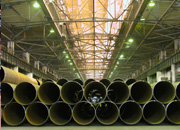 Threeway Steel is known as a professional supplier engaged in designing, manufacturing and distribution of a wide range of steel products with the headquarter located the central part of China – Hunan and six associated factories throughout China.
Threeway Steel is known as a professional supplier engaged in designing, manufacturing and distribution of a wide range of steel products with the headquarter located the central part of China – Hunan and six associated factories throughout China.
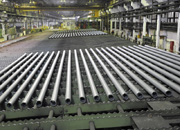 Threeway Steel is known as a professional supplier engaged in designing, manufacturing and distribution of a wide range of steel products with the headquarter located the central part of China – Hunan and six associated factories throughout China.
Threeway Steel is known as a professional supplier engaged in designing, manufacturing and distribution of a wide range of steel products with the headquarter located the central part of China – Hunan and six associated factories throughout China.
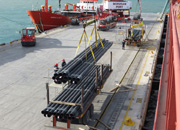 Threeway Steel is known as a professional supplier engaged in designing, manufacturing and distribution of a wide range of steel products with the headquarter located the central part of China – Hunan and six associated factories throughout China.
Threeway Steel is known as a professional supplier engaged in designing, manufacturing and distribution of a wide range of steel products with the headquarter located the central part of China – Hunan and six associated factories throughout China.

